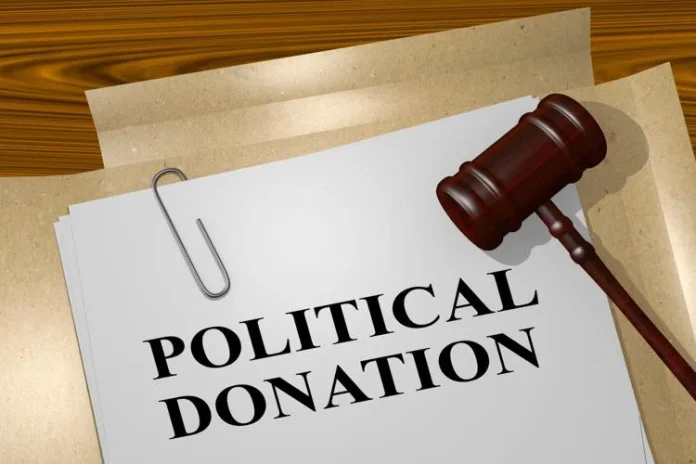(The Center Square) – It is currently illegal under federal and Washington state law for foreign nationals to contribute to political campaigns, whether for candidates or initiatives.
A bill introduced in the Washington State Legislature this session would amend state law to instead ban “foreign-influenced” corporations from participating.
Supporters view it as a way to prevent foreign entities from manipulating the outcome of Washington’s elections, but detractors argue that it runs afoul of the First Amendment and lacks clarity as to what constitutes “foreign-influenced.”
House Bill 1885 sponsored by Rep. Sharlett Mena, D-Tacoma, would repeal the ban on foreign nationals contributing or spending money on Washington elections and replace it with “foreign-influenced corporations,” which is defined as a for-profit corporation or LLC that has a foreign investor who owns 1% or more of the company’s interests, or more than one foreign investor that collectively own 5% of the ownership interest.
Testifying during a Tuesday public hearing in the House State Government & Tribal Relations Committee, Mena told colleagues that “foreign influenced corporations seeking to benefit their own interests, but not that of Washingtonians, are pouring money into our elections and initiatives year after year.”
She added that the bill “closes a dangerous loophole” and would “increase transparency and accountability in campaign finance. This bill centers the very people that we represent.”
However, some legislators such as Rep. Greg Cheney, R-Battle Ground, said that the definition of “foreign-influenced” lacks specificity, when ownership shares can change one way or another within moments during a given trading day.
“How do you measure when that one percent is being held under the terms of this bill?” he asked. “It seems to me that’s a really critical question if we don’t have an answer to it. Isn’t that a real problem?”
Others opposed included Julia Gordon with the Washington Hospitality Association, who told the committee that the bill “crosses the line into unfairly restricting political speech,” which could apply to companies with “extreme minority ownership” from foreign investors. However, she added that it would still be a “significant challenge even for businesses with no foreign ownership.”
Rep. Leonard Christian, R-Spokane Valley, speculated that the bill could also inadvertently lead to foreign meddling in elections by having foreign agents deliberately buy up minimum ownership of a corporation to prevent it from making contributions.
Yet, Association of Washington Business Government Affairs Director Peter Godlewski told the committee that “a lot of these stocks are held by a multitude of different holding companies…of which those ownerships are hard to trace.”
First Amendment attorney Lee Goodman alleged while testifying that the bill deliberately applies to corporations, and not international labor unions with foreign membership, to prevent a “level playing field” in political campaigns.
The bill is scheduled for a committee vote on Friday.




